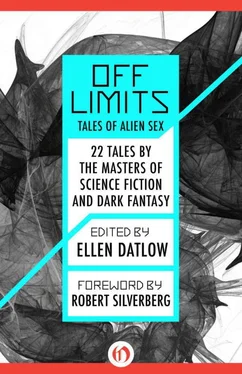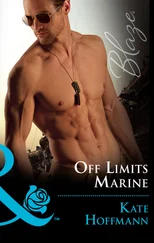“What friend?” I ask. I have no friends, only clients.
“Was Rio so bad you’ve forgotten who took you away from giving head on the Rua Princesa Isabel?”
I recall a name from the dream, “Cledilce.”
“She’s been in Paris a month, undergoing reassignment surgery.”
“You’ve seen her?”
“The word is she looks stunning,” Rudy says, ignoring my question. “You can imagine what—”
I hang up before his mindgames begin to sicken me. The new image is fixed in my brain, the face from my other life. Heinrich enters with a fix of dust and I surprise myself by refusing it. I’m not certain what I feel, but it is something strong.
Heinrich’s skilled hands massage my dark flesh, forcing tension from my limbs. I sometimes wonder why he allowed—why any null allows—himself to be surgically altered, his brain adapted so that the production of endorphins is tied to certain emotional states. Is it enough to have all feelings of self-interest sublimated into a desire to serve? To enslave the brain in return for the slow dripfeed of endorphins to its pleasure receptors? To be free forever of guilt and fear and stress? Perhaps, in his rare moments of lucidity, he wonders about my alteration?
Images begin to clarify, take on meaning. I sift through the chaos of memories, seeking to impose on them a sense of order.
I was not always Estela de Brito. I see a young boy, nine or ten, living on the streets of Rochina, the stinking favela that sprawled up over the lure of the wealthy suburb of São Conrado. And a sister, a year older, a pretty girl who sold her body so that they might eat. But already the teeth marks of the disease were on her flesh; there were nights when the boy awoke in the corrugated iron shack that was home, to her cries of pain as blood poured from between her legs. There were no parents.
Gangsters ruled Rochina with machine guns and calculated terror; occasionally some city politician wanting to make a name for himself would send the police into the favelas to wipe out a few marginals —lowlife petty thieves; the politician’s face would make the TV news and things would go on as before. Business-financed death squads would execute children; a cleansing process, ridding the city of future criminals, making Rio safe for gringo tourists. Their bullets spared the girl the worst ravages of the disease. The boy left Rochina and graduated to picking tourists’ pockets on Copacabana, and from there to the docks at Maua, where he learned to give head for ten dollars a trick. Soon, he was working the streets off Rua Princesa Isabel, discovering that he could double his take if he dressed as a girl. Evenings, he’d work the cars parked along the seafront, blowing the men on their way home from work; in one car, suck suck, open the door, spit it out and move on to the next vehicle; for an hour or two each evening, a prolonged chorus of slamming car doors.
And all the while, the boy worked on his appearance, improving his makeup and clothes, avoiding the older hookers and pimps till one day he gave lip to a marginal who wanted his money. The man was going to cut him bad and would have too, if it hadn’t been for the tall, raven-haired figure who buried a knife in the man’s ribs. That was his first meeting with Cledilce Macedo. He was sixteen, street-smart, and was making more money than the boy had thought possible from giving head. Cledilce’s johns—American and European tourists—were a long way up from the factory workers and dockers among whom the boy plied his trade. They had to be, because Cledilce was a Bird, a preoperative transsexual on a female hormone program, and like any other route out of the gutter, hormones cost big money. He took the boy home to a shabby apartment on the sixth floor of a block on Rua Toneleiros. He got him on to hormones, too, and told him he needed a new name.
For three years he… I learned, developing and refining my body, making contacts, saving money, and loving Cledilce. At first, I worried that I would no longer be able to perform sexually, that it would feel like nothing at all, but the strength of Cledilce’s erection soon put my mind at rest. There would be no loss of libido he, or rather she, explained, not until after the operation. And even then, we wouldn’t have to ejaculate to experience orgasm; sex, she said, was mainly in the head. As my breasts grew and I lost my facial hair, I began to worry about the operation itself. I had heard tales of the awful consequences of the gender reassignments carried out in the Centro clinics, even saw the evidence of their botched surgery with my own eyes. Till Cledilce had finally shared the dream with me, the dream of escaping to ‘sanctuary,’ where Parisian surgeons—not Centro butchers—would sculpt us anew, transforming us so that we would feel what women were meant to feel.
As Heinrich sits me up to arrange my jet black hair into a dazzling coiffure, one that, like my body, will impress Spengler’s important friends, I think: they lied to us.
Heinrich guides the Mercedes through rain-slick streets, along Kanstrasse past shabby, smoke-filled kneipen, into Kurfürstendam, past sidewalk cafes with glassed-in terraces where unblemished middle-aged women sit alone with their drinks, past the Komödie theater till it pulls up outside the The Blue Angel. Young Babes—sexually precocious girls of nine or ten—flaunt themselves outside the entrance, some of them menstruating so profusely that, even through their heavy padding, blood streams down their stockinged legs. Images of Sally Bowles and Marlene Dietrich fill their minds, feeding the awful need that has drawn them here to plead with implacable doormen, seeking to gain entrance to the scene of their inspirations’ former glories. One crumbling, anemic beauty falls to the pavement. The others start bickering over her as she crawls away to die. Then the doormen step out onto the pavement and form a cordon around Spengler, who comes out into the rain to greet me. The Babes try to grasp his arms and legs, but he strides through them, all lean arrogance and efficiency clothed in a black lounge suit. I get out of the car and he holds me at a slight distance, surveying my array of scarlet feathers and blue chiffon as if I were some prized possession. I move past him, into the club where a troupe of Birds reenact a Sapphic orgy on the main stage, while in the discreet alcoves an assortment of Birds and Babes provide a range of sexual favors for the rich clientele.
Backstage, I pop an Aktive ’poule against my neck, to blunt reality. A house null leads me down a blue corridor to Spengler’s private suite, reserved for the entertainment of important friends. The null clips wires to my costume as Spengler introduces the queen of The Birds of the Crystal Plumage, and then a taped barrage of Brazilian drums heralds my entrance. There are twelve men in the room, seated on leather couches, their desires caged in refinement and respectability. I ruffle my feathers in time to the music as I strut across the marble stage, offering them glimpses into hidden dreams. Then Claudio swoops into view, suspended over the stage like a magnificent condor, the twelve-inch penis that Dr. Kleinfeld has crafted for him erect beneath the black plumage that adorns his laburnum flesh. He sweeps me up in his arms and lust thrums in the air like the sound of swarming insects, hot and feverish, no different from the lust of the dockworkers at Maua who came to be blown by a half-formed Bird. We glide over the stage, Claudio and I, borne on sensuous rhythms as we act out an improbable seduction. Until finally, in midair, he plucks my feathers with exaggerated care and then plunges his meat into me. Whatever perfunctory pleasures I once might have derived from these performances has been worn down by soulless repetition. We fuck like birds on the wing, Claudio’s precision tool grinding against the template of my vagina. The only thing I feel is numb. He withdraws before he comes so that the audience may appreciate the bounty he showers over my breasts, a seemingly endless rain of semen; another of Kleinfeld’s miracles.
Читать дальше












